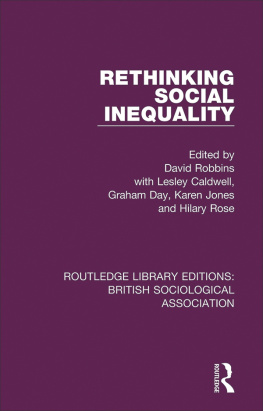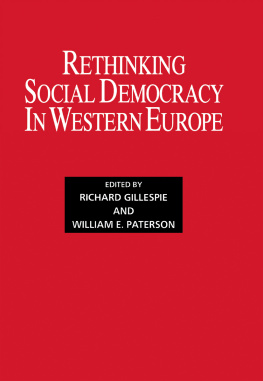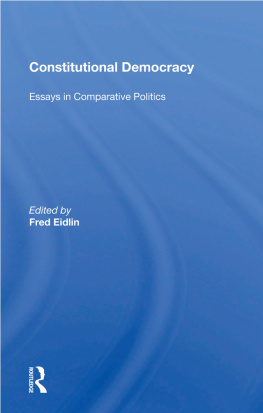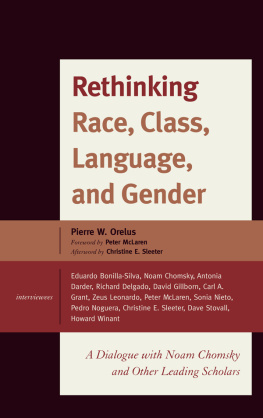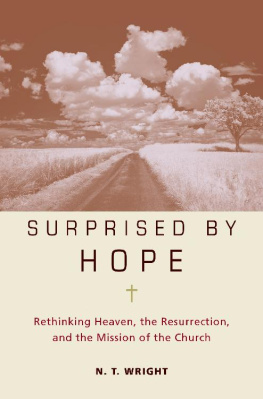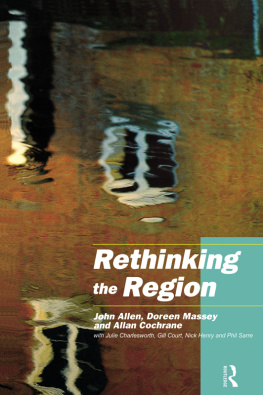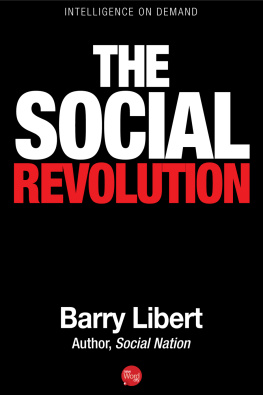
Political Power and Social Theory
Series Editor: Julian Go
Political Power and Social Theory is a peer-reviewed journal committed to advancing the interdisciplinary understanding of the linkages between political power, social relations, and historical development. The journal welcomes both empirical and theoretical work and is willing to consider papers of substantial length. Publication decisions are made by the editor in consultation with members of the editorial board and anonymous reviewers. For information on submissions, and a full list of volumes, please see the journal website at www.emeraldgrouppublishing.com/tk/ppst
Recent Volumes:
Volume 22: Rethinking Obama, 2011
Volume 23: Political Power and Social Theory, 2012
Volume 24: Postcolonial Sociology, 2013
Volume 25: Decentering Social Theory, 2013
Volume 26: The United States in Decline, 2014
Volume 27: Fields of Knowledge: Science, Politics and Publics in the Neoliberal Age, 2014
Volume 28: Patrimonial Capitalism and Empire, 2015
Volume 29: Chartering Capitalism: Organizing Markets, States, and Publics, 2015
Volume 30: Perverse Politics? Feminism, Anti-Imperialism, Multiplicity, 2016
Volume 31: Postcolonial Sociologies: A Reader, 2016
Volume 32: International Origins of Social and Political Theory, 2017
Volume 33: Rethinking the Colonial State, 2017
Volume 34: Critical Realism, History and Philosophy in the Social Sciences, 2018
Volume 35: Gendering Struggles Against Informal and Precarious Work, 2018
Volume 36: Religion, Humility, and Democracy in a Divided America, 2019
Senior Editorial Board
Political Power and Social Theory
Ronald Aminzade
University of Minnesota | Eiko Ikegami
New School University Graduate Faculty |
Eduardo Bonilla-Silva
Duke University | Howard Kimeldorf
University of Michigan-Ann Arbor |
Michael Burawoy
University of California-Berkeley | George Lawson
London School of Economics |
Nitsan Chorev
Brown University | Daniel Slater
University of Michigan |
Diane E. Davis
Harvard University | George Steinmetz
University of Michigan |
Peter Evans
University of California-Berkeley | Maurice Zeitlin
University of California-Los Angeles |
Julian Go
Boston University |
Student Editorial Board
Ladin Bayurgil
Boston University |
Patricia Ward
Boston University |
Jake Watson
Boston University |
Political Power and Social Theory Volume 37
RETHINKING CLASS AND SOCIAL DIFFERENCE
Edited By
BARRY EIDLIN
McGill University, Canada
MICHAEL A. MCCARTHY
Marquette University, USA
United Kingdom North America Japan
India Malaysia China
Emerald Publishing Limited
Howard House, Wagon Lane, Bingley BD16 1WA, UK
First edition 2020
Copyright 2020 Emerald Publishing Limited
Reprints and permissions service
Contact:
No part of this book may be reproduced, stored in a retrieval system, transmitted in any form or by any means electronic, mechanical, photocopying, recording or otherwise without either the prior written permission of the publisher or a licence permitting restricted copying issued in the UK by The Copyright Licensing Agency and in the USA by The Copyright Clearance Center. Any opinions expressed in the chapters are those of the authors. Whilst Emerald makes every effort to ensure the quality and accuracy of its content, Emerald makes no representation implied or otherwise, as to the chapters' suitability and application and disclaims any warranties, express or implied, to their use.
British Library Cataloguing in Publication Data
A catalogue record for this book is available from the British Library
ISBN: 978-1-83982-021-2 (Print)
ISBN: 978-1-83982-020-5 (Online)
ISBN: 978-1-83982-022-9 (Epub)
ISSN: 0198-8719
List of Contributors
| Mathieu Hikaru Desan | University of Colorado Boulder, USA |
| Zophia Edwards | Providence College, USA |
| Barry Eidlin | McGill University, Canada |
| Marie Gottschalk | The University of Pennsylvania, USA |
| Kevan Harris | University of California, Los Angeles, USA |
| Katherine Eva Maich | The Pennsylvania State University, USA |
| Michael A. McCarthy | Marquette University, USA |
| Jen Schradie | Sciences Po, France |
| Gowri Vijaykumar | Brandeis University, USA |
Contents
Barry Eidlin and Michael A. McCarthy
Marie Gottschalk
Mathieu Hikaru Desan
Jen Schradie
Kevan Harris
Gowri Vijayakumar
Zophia Edwards
Katherine Eva Maich
List of Figures and Tables
| Figure 1. | Self-identification of Household Class in Iran (2016 Iran Social Survey). | 108 |
| Figure 2. | Self-identification of Household Class (Upper, Middle, Working, Poor) in Iran by Monthly Household Income (in Millions of 2016-Year Tomans) and Respondent Educational Attainment. | 109 |
| Figure 3. | Vote Choice in the 2013 Iranian Presidential Election by Educational Attainment (2016 Iran Social Survey). | 112 |
| Figure 4. | Vote Choice in the 2013 Iranian Presidential Election by Household Income (2016 Iran Social Survey). | 113 |
| Figure 5. | Vote Choice in the 2013 Presidential Election by Self-identified Class Position (2016 Iran Social Survey). | 114 |
| Table 1. | Occupational Structure of the Iranian Labor Force, 19862011. | 125 |
Introducing Rethinking Class and Social Difference: A Dynamic Asymmetry Approach
Barry Eidlin and Michael A. McCarthy
Abstract
Social class has long existed in tension with other forms of social difference such as race, gender, and sexuality, both in academic and popular debate. While Marxist-influenced class primacy perspectives gained prominence in US sociology in the 1970s, they faded from view by the 1990s, replaced by perspectives focusing on culture and institutions or on intersectional analyses of how multiple forms of social difference shape durable patterns of disempowerment and marginalization. More recently, class and capitalism have reasserted their place on the academic agenda, but continue to coexist uneasily with analyses of oppression and social difference. Here we discuss possibilities for bridging the gap between studies of class and other forms of social difference. We contend that these categories are best understood in relation to each other when situated in a larger system with its own endogenous dynamics and tendencies, namely capitalism. After providing an historical account of the fraught relationship between studies of class and other forms of social difference, we propose a theoretical model for integrating understandings of class and social difference using Wright et al.s concept of


